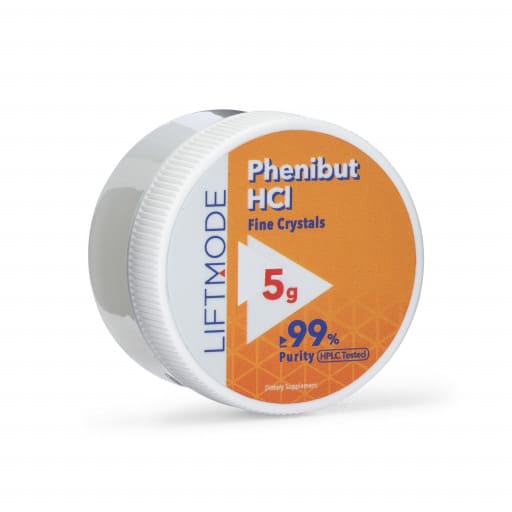
Phenibut is a central nervous system depressant that was first synthesized in Russia in the 1960s. Phenibut is a derivative of gamma aminobutyric acid (GABA), a neurotransmitter that regulates sleep, relaxation, anxiety and muscle tone.
It has been used in Russia for decades as an anti-anxiety agent for military and cosmonauts.
Phenibut is marketed, usually online, as a supplement to promote relaxation. It is also used as a sleep aid and to reduce social anxiety in individuals.
The drug was added to the list of substances prohibited by the World Anti-Doping Agency in January 2014.
Phenibut is most often taken for an anti-anxiety drug purpose, but it is also regularly used as a nootropic and mood enhancer.
What The Science Says
Phenibut was found to produce significant anxiolytic activity in animal studies, while many researchers consider it largely ineffective as a nootropic for cognitive performance enhancement.
A study conducted in 2007 involving 546 participants found that phenibut's effects were strongest in the first six hours after taking the drug (when levels of GABA are highest).
Phenibut is gaining popularity as an over-the-counter (OTC) supplement. It is sold in powder or capsule form, often labeled as a "nootropic" or "smart drug," and it is also sold online as a "natural" alternative to the prescription drug baclofen.
Phenibut has not received any formal clinical trials for its effectiveness and safety in humans, though it has been extensively tested on animals, specifically in Russia.
Based on animal studies, phenibut is a GABA receptor agonist; it binds to the GABA receptors, causing a reduction in anxiety and stress responses.
It is not an NMDA receptor antagonist, though it does not bind to the NMDA receptors either.
How Phenibut Works As A Drug
Despite this fact, phenibut has effects similar to these drugs. The effects of phenibut are primarily caused by direct binding to the GABA receptors.
The decreased GABA activity produced by Phenibut causes sedation and relaxation of muscles.
Gamma-aminobutyric acid (GABA) is an inhibitory neurotransmitter that regulates sleep, relaxation, anxiety and muscle tone.
GABA is primarily synthesized in the brain from glutamate, a neurotransmitter that is also used as a signaling molecule.
GABA is then released into the synapse where it works with the neurotransmitter–preferably the one that it was synthesized from.
These neurotransmitters–GABA complexes slow down the spread of the signal from one neuron to another.
For example, GABA can bind to the nicotinic acetylcholine receptors found in both lower organisms and humans.
When these receptors are bound by GABA, they cannot be activated by the neurotransmitters found in cholinergic neurons.
If these receptors were not bound by GABA, activation of these receptors would cause stimulation of muscles and an increase in heart rate.
With the help of GABA, the nicotinic acetylcholine receptors work to slow down the heart rate and relax muscles.
A Tranquilizer and Nootropic Drug
Phenibut has been shown to produce significant anxiolytic activity in animal studies, while many researchers consider it largely ineffective as a nootropic for cognitive performance enhancement.
However, the drug is commonly used as a nootropic, in which it has been shown to promote cognitive and memory enhancement in numerous studies.
In some ways, Phenibut is a well-rounded drug. The Russian Federal Medical and Biological Agency (FMBA) has approved its use for anxiety disorders, post-traumatic stress disorder (PTSD), depression and insomnia.
Phenibut appears to be an effective non-addictive tranquilizer that can be used to treat all of these medical conditions.
But the safer way to use it is as an anxiolytic or sleep aid to reduce stress and enhance relaxation.
Since Phenibut has a half-life of 12 hours, it is not suitable for everyday use.
The drug can be taken every other day or once a week, but do not take it every day or you may develop a tolerance to the drug (and nasty withdrawals).
A number of studies have also shown that prolonged use of Phenibut may lead to dependence.
The symptoms of withdrawal can include anxiety, insomnia and nausea.
source https://nootropicology.com/what-kind-of-drug-is-phenibut/

No comments:
Post a Comment